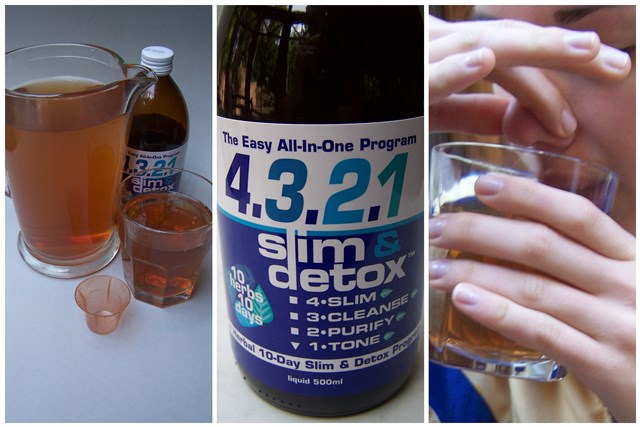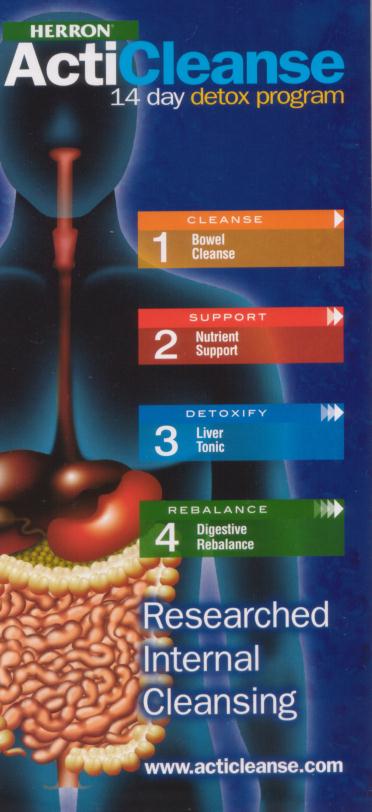- Home
- Blog
- Healthy Weight Loss
- Detox kits - why they don't work
Detox kits - why they don't work
Written by Catherine Saxelby
on Tuesday, 09 April 2013.
Tagged: Calories, diet, diet foods, dieting, diets, fat loss, fluids, food trends, hunger, liquid diet, overweight, prebiotic, review, salad, vegetables, water, weight loss

Detox diets and detox 'cleansing' kits are big sellers. They promise lots of things - to purify the body, remove 'wastes' and eliminate 'toxins' (which are never really defined) and rejuvenate the liver. They say they can improve a sluggish digestion, revitalise the skin and boost your energy. Detox has become so accepted in our time-poor, instant world that many people embark on one whenever they've overdone the excesses of life and feel the need to refresh and revitalise. After Christmas is a classic time.
Detox kits and what's in them
Many companies have capitalised on the detox craze – there's juicers, books and detox recipes. But sales of the detox kits in pharmacies and online stores are huge.

All are similar in concept and are designed to support you when on a detox diet. Inside you'll generally find 3 or 4 separate packs of powders, tablets or liquid (like the 4321 Slim Detox drink base shown above), each meant to address a different organ of the body. For instance, they are meant to look after the:
1. Stomach
Herbals offers things like ginger, fennel, Globe artichoke, Cats claw, peppermint, clove, Black walnut as well as bioflavonoids and minerals such as potassium or magnesium. These are meant to prepare the digestive tract for work, stimulate appetite and increase the flow of gastric juices. Traditional naturopathic remedies but will they help you shed weight? I doubt it!
2. Liver

3. Colon
Your colon (bowel) is given a good cleanout with mild laxatives such as senna, casacara or rhubarb. Some kits offer Artemisia absinthium (wormwood), a herb known to destroy gut parasites, and Hydrastis Canadensis (goldenseal) and Inula helenium (elecampane), two well-known digestive stimulants and bitter stomach herbs. See Acticleanse brochure at right.
There are soluble fibres like psyllium, slippery elm, oat bran, guar and pectin. They sound like you'd lose weight on your detox plan thanks to their laxative effect but in reality the actual quantity of fibre present is quite low – often less than 1 gram per dose. Considering you get 5 to 6g of fibre from a tablespoon of wheat bran or around 3 g from a spoonful of psyllium powder (as Metamucil), you can see you're not getting a great deal of fibre from the detox tablets. Hardly worth the price.
4. Intestinal
'Gut-friendly' bacteria - acidophilus or Bifido – are included in some kits to maintain healthy levels of bacteria in the intestines, which can promote proper digestion and bowel health. The bacteria are usually accompanied by a prebiotic with fancy-sounding names like inulin or high-amylose starch which acts as its food supply. See Blackmores Detox Kit below as an example.

Do the kits work?
Not without you following a diet for more than a few days! However I was surprised to discover they have two unintended benefits and one serious limitation :
- You take anywhere from 8 to 12 tablets each day (or drink 1 litre of some foul-tasting concoction), usually before meals, but sometimes in between meals as well. In contrast to a food plan, the constant taking of tablets or drinks act as a mental reminder that you're on a special regime. Their key role is to motivate and focus you to stay on track (non-food "reinforcers"). Since there are so many different tablets at different times of the day, it's an idea to make a little fridge chart to remind yourself to take them.
- You've paid a lot of money, which is another motivator. The kits range from A$49 for a 10-day supply to A$100 for a 15-day regimen.
- Limitation: The quantities of herbs are not significant enough to have an effect. If you truly believe herbs can help, I think you're better off seeing a qualified herbalist and getting the correct dosage made up for your age and weight.
The bottom line
- You don't NEED to spend your money on a kit - without special pills or drinks - to detox.
- The kit is only one small part of a detox program – and it's the easiest part! You simply swallow the tablets or the liquid before or during your meals. The hard bit is giving up your usual foods, not going out and just living on fruit, juices, vegetables, tea and water.
- If you do decide to try a detox kit, look for one that's simple and easy to remember to take (some require you to take so many tablets it's hard to remember when and how many). As they contain so many combinations of herbs, fibres and vitamins, it's hard to give definite guidelines. Price is not always the best guide so stick to reputable brands and steer clear of over-exaggerated claims.
You may also be interested in...
Foodwatch
The Good Stuff
The Boring Stuff
© 2025 Foodwatch Australia. All rights reserved
Website by Joomstore eCommerce









